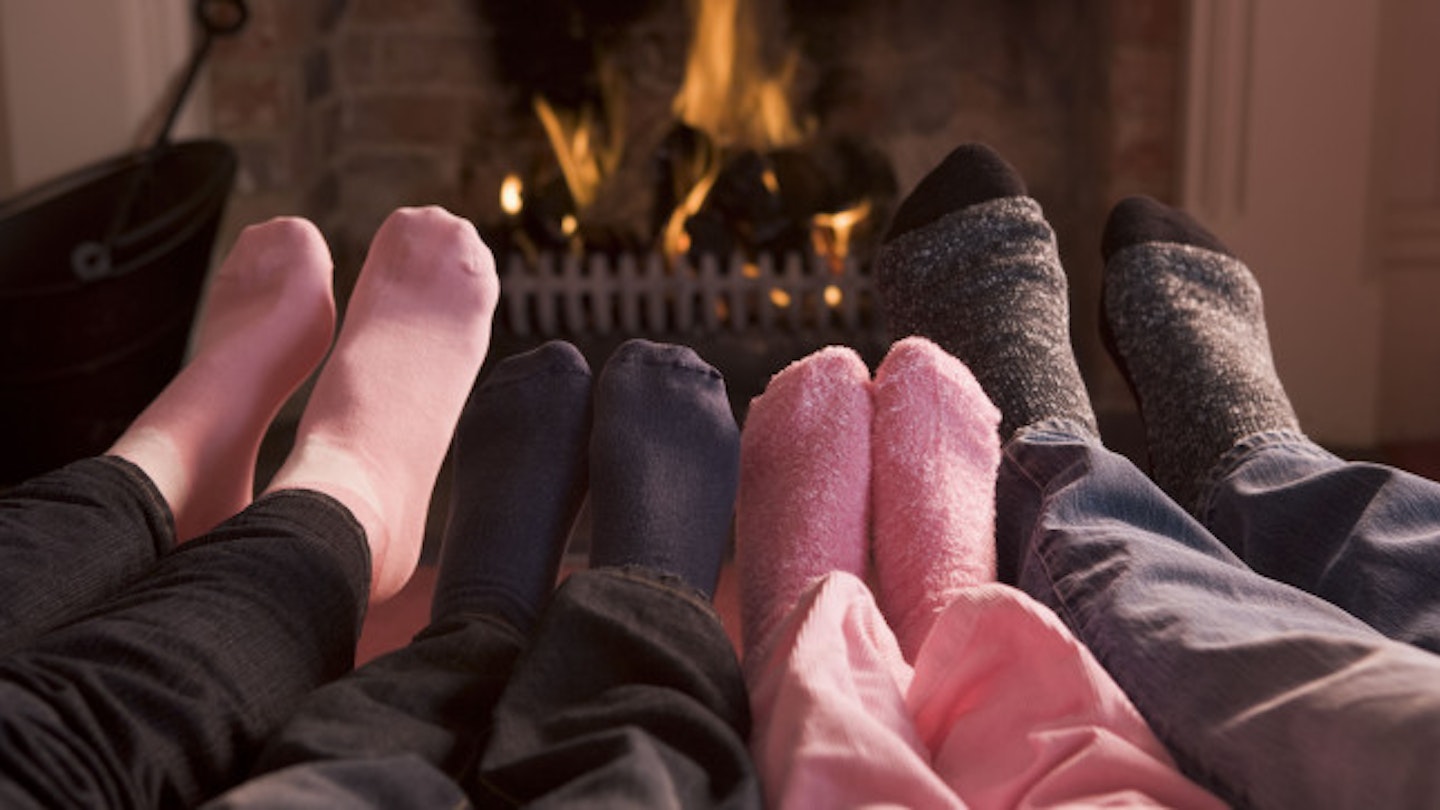When the cold wind starts to bite we retreat indoors to the comforts of home.
But keeping cosy in winter doesn’t come cheap; gas, electricity and water costs can spiral out of control as we’re tempted to crank up the heating and binge on boxsets.
Many of us live in draughty, old homes where it’s hard to prevent the elements from creeping in. So here’s our Closer guide to better managing your lifestyle and energy bills this season. You’ll be surprised at the savings you can make from very small changes to your home and routine.
Will switching provider help me reduce my energy bills?
The best place to start is your energy bills.
Websites like uSwitch and Money Saving Expert can help you compare prices and make sense of complicated tariffs. Both sites promise savings of at least £300 a year; there are even guides to step through the switching process.
Just remember that prices vary by region and usage. So have your bill handy and use the postcode search function for the most accurate results.
How much should I invest in insulation?
Most heat is lost through the roof or between wall cavities. The Energy Savings Trust recommends insulation that is effective for over 40 years.
You could save up to £140 by getting your loft insulated and up to £160 for cavity walls. Most options payback after a couple of years.
Is there a way to insulate my home for free?
If your home is suitable, you could save as much as £160 a year by getting your cavity walls insulated and as much as £140 by getting your loft insulated*.
Find out more at the British Gas website now.

How should I insulate my water pipes? And will it help cut costs?
In a word, yes; burst pipes are a huge issue for UK households during winter months.
British Gas recommends insulating your pipes to prevent them from bursting as the frost thaws by using lagging, which can be bought cheaply from most DIY shops. For extra peace of mind you could also look into a smart thermostat product such as Hive Active Heating, which automatically activates when your heating's off and the temperature inside your home dips below 7°C, to help protect your pipes from freezing.
Watch George Clarks' video demonstration here:
Are there any free energy-saving tools available?
The Energy Savings Trust has some fantastic tools that can help you control your energy use and make some significant savings.
The Home Energy Check and Water Energy Calculator deliver personalised reports based on the information you provide.
Will bleeding my radiator help? And how do I bleed a radiator if so?
Radiators often develop ‘cold spots’ when out of action over the warmer months. The process of ‘bleeding’ out the air bubbles will ensure they work effectively come Winter.
Sheena Anker, an Engineer from British Gas, explains how:
-
Turn the system off
-
Turn the radiator key until the air stops and water runs consistently.
-
Once you have turned the system back on, the problem should be solved.
Or watch George Clark's video demonstration here:
Bleeding your radiator may result in pressure dropping. If you have a pressure gauge, make sure the boiler is at the right pressure and top up as necessary.
Should I turn down my thermostat?
Yes - but only take it down by 1°C.
According to uSwitch, you can save up to £60 per year with a simple swipe.
A thermostat set to 60°C/140°F should be adequately toasty.
How can I protect my boiler?
British Gas say: “Check to make sure that your boiler is working properly before winter sets in. The older your boiler, the more inefficient it will be. If you have a pressure gauge make sure the boiler is at the right pressure and top up as necessary.”
They also advise that you wrap up your water tank and insulate hot water. The materials can be purchased from most DIY stores and help to conserve heat and save you money.
How can I save money on my water bills?
Reduce your water bills with these little tricks:
-
Scrape left-overs from your dishes and try a shorter dishwasher cycle (without the pre-rinse)
-
Turn the water pressure down so you’re less tempted to linger under a long, hot shower
-
Turn to 30°C - because, according to uSwitch, 90% of a washing machine's energy is spent on heating the water

How can I heat up my cold kitchen?
It’s always hot in the kitchen so keep it that way by leaving your oven door open for as long as possible after taking out your cooked dinner.
Can I switch anything off to save money on energy bills?
You’d be surprised how many devices we’re connected to these days – phones, tablets, laptops, TVs, gaming consoles – they all waste precious energy when we’re not using them.
So don’t leave them on standby. Unplug and switch off those electrical sockets.
And remember those lights!
How can I reduce draughts in my home?
British Gas explain: “Make sure all of your home’s windows and doors seal properly to stop warm air escaping.
“For those that don’t, fitting draught excluders, which you can buy from most DIY stores, is a quick and cheap way to cut down on your energy bills.”
According to uSwitch, 20% of heat-loss in a typical home is through door and window draughts; curtains are a fantastic way to insulate your windows and express your creative side. They’re also a lot cheaper that double or triple glazing.
Heavily lined curtains work best but you can save money by getting crafty with fleece or bubble wrap.
How can I stop wind blowing down and out of my chimney?
If you have an open chimney but can't afford to light a fire, pin a sheet across it, which keeps the wind from blowing down the chimney.
What should I do if I can’t afford double glazing?
Builders plastic isn't cheap, but it's cheaper than double glazing. Tape it over windows and it can keep the heat in and the cold out.
And what’s the quickest way to get warm in a cold house?
Piling on the jumpers, socks and fluffy slippers can make a massive difference. And so can thermal undergarments used for skiing and hiking in the bitter cold!
Fore more free tips and advice from experts, check out these websites:
